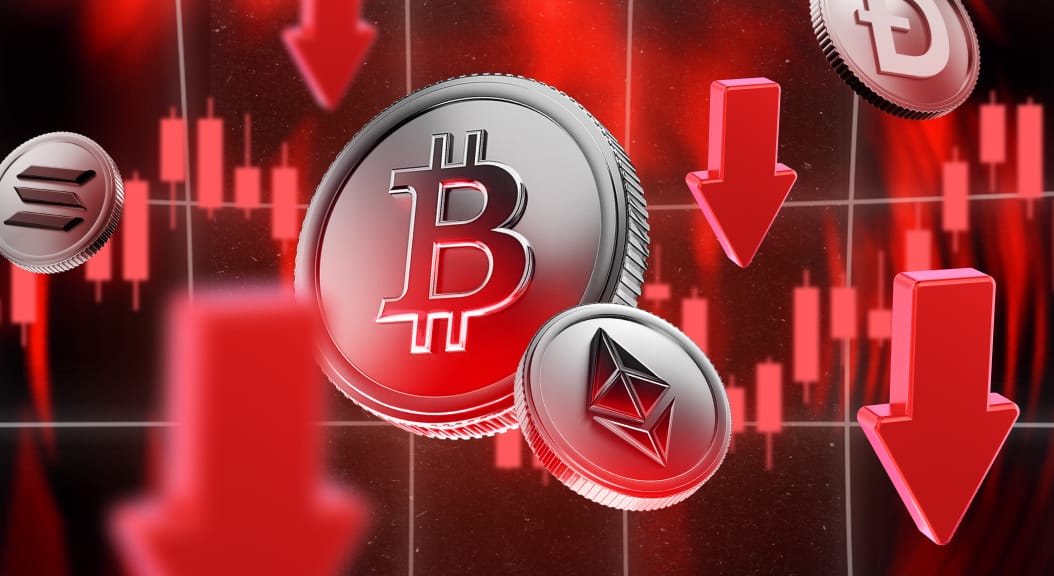Israeli Airstrikes on Iran Spark Tension and Crypto Market Turmoil

On Thursday, June 12, 2025, a dramatic escalation in the long-simmering conflict between Israel and Iran unfolded as Israeli forces launched a series of airstrikes targeting Iranian nuclear and military sites, with explosions reported across Tehran. The Israel Defense Forces (IDF) confirmed the operation as a preemptive strike which they claim was aimed at thwarting Iran’s advancing nuclear capabilities.
This development, corroborated by sources such as AP News and Israeli media outlet N12, has sent shockwaves through the Middle East and global financial markets, with cryptocurrencies like Bitcoin and Ethereum experiencing sharp declines. As the situation evolves, the world watches closely for Iran’s response and the broader geopolitical fallout.
Stay In The Loop and Never Miss Important Crypto News
Sign up and be the first to know when we publishA Preemptive Strike and Its Immediate Fallout
The IDF announced that dozens of Israeli Air Force jets conducted strikes on Iranian nuclear facilities, including the critical Natanz enrichment complex, as well as military targets linked to Iran’s ballistic missile program. Israeli Prime Minister Benjamin Netanyahu, in a televised address, described the operation as a necessary response to an “existential threat,” claiming that Iran had amassed enough enriched uranium to produce up to 15 nuclear weapons within days. This is a similar claim Netanyahu had been making for 33 years, since 1992.
Netanyahu's Iran nuclear bomb claim timeline: 1992-present pic.twitter.com/FpCG9EPRlJ
— The United States of Israel (@IsraeliLobby) June 12, 2025
Israeli media outlet N12 reported that the operation today was coordinated with U.S. officials. The global response has been swift but cautious. The U.S. has evacuated non-essential personnel from Middle East embassies, signaling concerns about retaliatory strikes on American interests. Russia, a key ally of Iran, has yet to comment, but its role in supplying Iran with air defense systems like the S-300 could complicate the conflict. As the situation unfolds, the potential for a broader regional conflict looms, with implications for oil markets, global trade, and security dynamics.
Crypto Markets Reel Amid Geopolitical Uncertainty
The financial markets, particularly cryptocurrencies, have reacted sharply to the news of the Israeli strikes. Bitcoin, which started the day at $108,959, plummeted to $102,772 within an hour of the initial reports, erasing all daily gains. As of the latest update, Bitcoin is trading at $103,780, down 5% for the day, with analysts warning of further volatility as markets open on Friday. Ethereum has fared worse, dropping 10% from $2,762 to $2,500, while Solana also shed 10%, falling from $159 to $143. The broader crypto market has seen declines ranging from 6% to 12%, reflecting a flight to safety among investors.
This sell-off echoes previous geopolitical flashpoints, such as the April 2024 Israeli-Iranian exchanges, which triggered weekend crypto dips followed by rapid recoveries once tensions eased. Analysts suggest that the current downturn may present buying opportunities if de-escalation occurs, but prolonged conflict could exacerbate losses. The spike in oil prices, with Brent crude jumping 8% to $75 per barrel, further underscores the economic ripple effects, as Iran’s strategic position near the Strait of Hormuz raises fears of disruptions to global energy supplies. Gold, a traditional safe-haven asset, rose 1.7% to $2,414 an ounce, highlighting the risk-off sentiment gripping markets.
The crypto market’s reaction is particularly significant given its sensitivity to macroeconomic and geopolitical shocks. Posts on X have noted high volatility, with some users describing the strikes as a “textbook risk-off catalyst” driving capital away from speculative assets like Bitcoin and Ethereum. Others, however, point to historical patterns where crypto markets rebound quickly after initial panic, suggesting that long-term investors may view the dip as temporary. For now, the uncertainty surrounding Iran’s next moves and the potential for a wider conflict keeps traders on edge, with trading volumes spiking on major exchanges.

